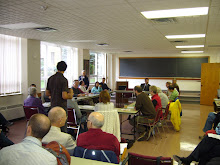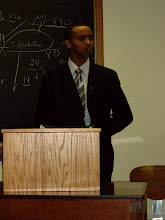Anti-Judaism in the Christian Liturgy
by Dr. Basilius Jacobus Groen (University of Graz, Austria)
In the course of history, nearly all major Christian denominations espoused in their liturgical enactments anti-Jewish components, that might even degenerate into anti-Semitic invective. Today, an array of churches have revised these elements while affirmatively referring to the Jewish legacy and present-day Jewry. In some other churches, however, liturgical anti-Judaism continues, particularly during Holy Week.
Professor Basilius Jacobus (Bert) Groen is professor emeritus of liturgical studies at the University of Graz, and visiting professor at the Catholic University of Leuven and the Pontifical Oriental Institute in Rome.
Handout
- Introduction
- Survey of Anti-Jewish Polemics in the Byzantine Rite
- Main themes:
- murder of God (θεοκτονία)
- jealousy
- absurdity
- ungratefulness, ignorance, and stubbornness
- closeness of the names of Judas (Ἰούδας), the tribe Judah (Ἰούδα) and the Jews (Ἰουδαῖοι)
- incapacity of the synagogue and ‘curse of the Law’.
- warning for the Christian ‘brothers’ (ἀδελφοί)
- Roots in the Early Church
- Paradoxes and antitheses
- Old Testament saints in the Byzantine rite; ‘types’ (τύποι), ‘shadows’, ‘enigmas’
- Revision?
- Orthodox-Jewish dialogue
- Intelligibility of the texts. Self-identification?
- Anti-Judaism in Greece, Russia, and the Middle East
- Attempts of reinterpretation: Kallistos Ware, Alexander Schmemann, Alkiviadis Calivas, Stanley Harakas
- French Orthodox catechism, Dieu vivant: ‘Semitic faces’
- Byzantine Catholic communities: ‘Prayer Book’ (Molytvoslov), issued by the Ukrainian Basilians, and Dutch Byzantijns Liturgikon
- Nostra Aetate
- Conclusion
- Holding on to God’s holy name and keeping the covenant as key hallmarks of both Judaism and Christianity
- Entwinement of faith, liturgy, ecclesiology, lex orandi, lex credendi, and lex agendi/vivendi
- ‘Prayer of St Ephrem







